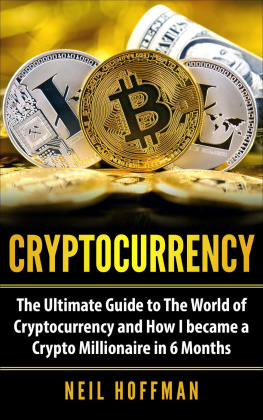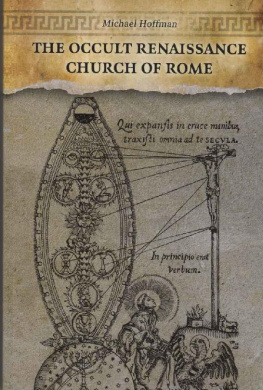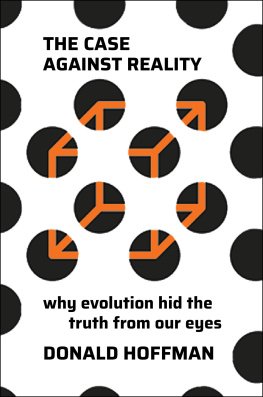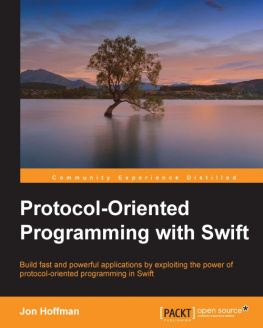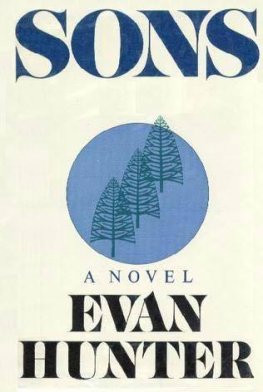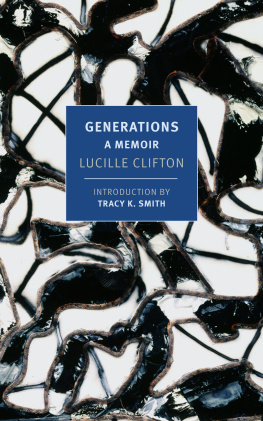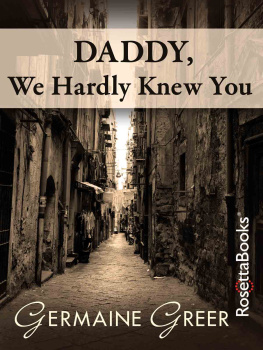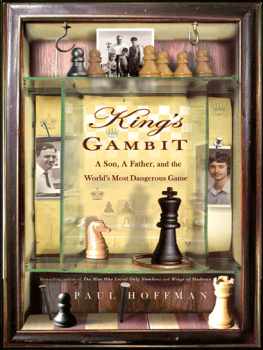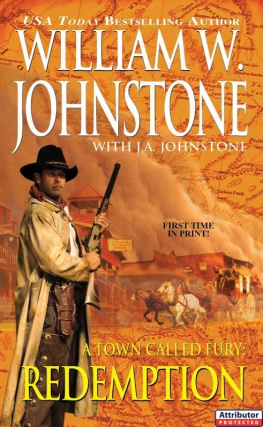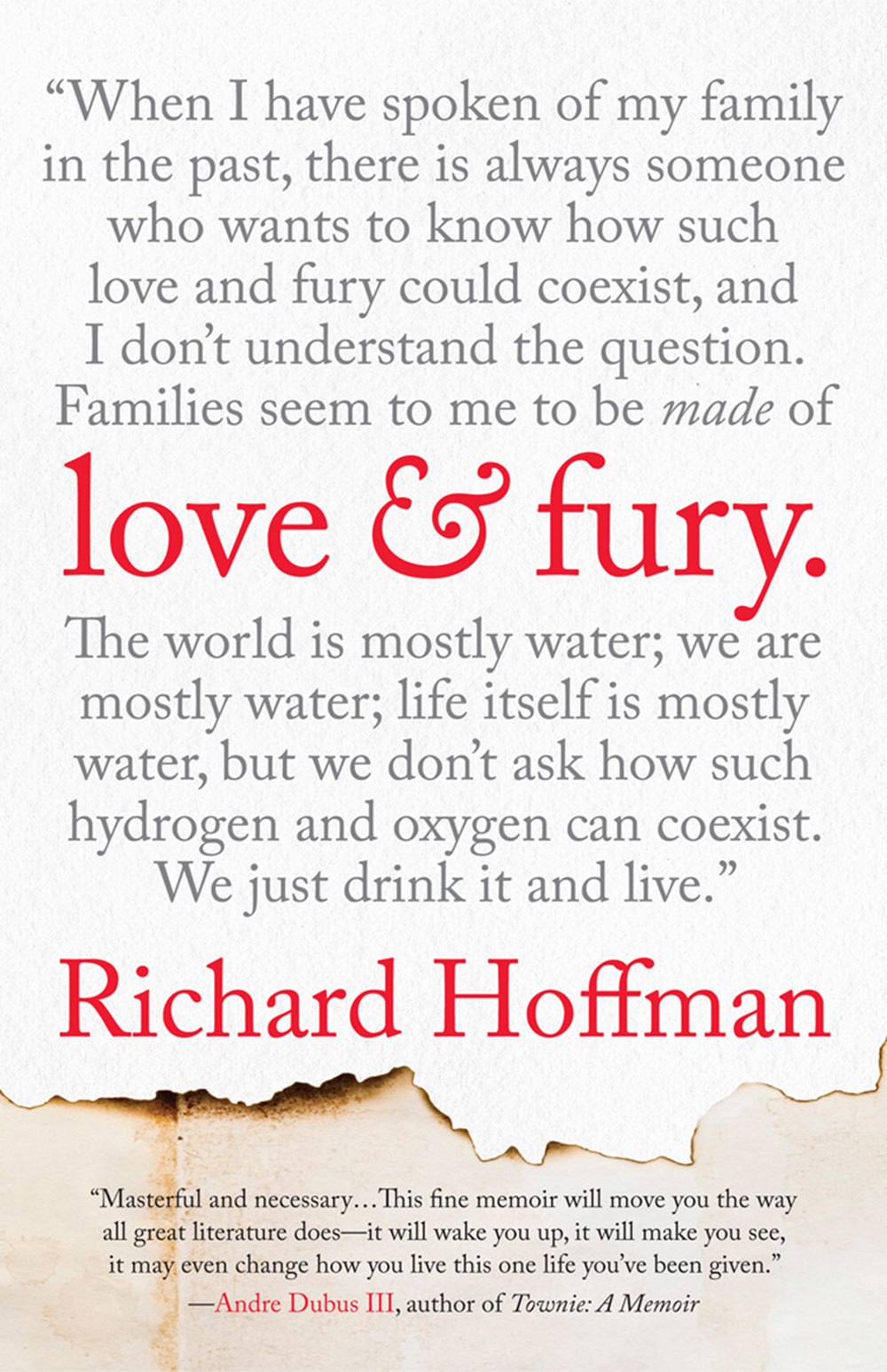ALSO BY RICHARD HOFFMAN
Memoir
Half the House
Poetry
Emblem
Gold Star Road
Without Paradise
Fiction
Interference and Other Stories
Richard Hoffman
BEACON PRESS, BOSTON
IN MEMORY OF
Richard C. Hoffman Sr.
19252008
AND FOR
Kathi, Robert, Veronica,
Damion, and D
Every society is really governed by hidden laws, by unspoken but profound assumptions on the part of the people, and ours is no exception. It is up to the American writer to find out what these laws and assumptions are. In a society much given to smashing taboos without thereby managing to be liberated from them, it will be no easy matter.
James Baldwin

The responsibility of a writer is to excavate the experience of the people who produced him.
JAMES BALDWIN
Were sitting in the kitchen, at the scarred Formica table, my father and my brother Joe and I, having just finished the kind of meal we have had innumerable times in the twenty-three years since my mother died: take-out hot dogs from Yocco, the Hot Dog King with a side of deep-fried pierogies, or maybe it was microwaved Lloyds Roast Beef Barbecue from a plastic container in the fridge, or strip steaks on the George Foreman Grill, with a side of microwaved instant mashed potatoes. I cant recall for certain what we ate that night, maybe because my father has asked us to meet with him after supper to go over his will, and the two steel boxes have been there on the table next to the tall plastic bottle of orange soda throughout the meal, keeping their secrets to themselves. I know whats in at least one of them, though: birth certificates, death certificates, account numbers, records, directions, the deeds to graves. Its two weeks since hes been diagnosed with MDS, myelodysplastic syndrome, a condition that, at his age, eighty-one, almost always becomes leukemia. He has everything in order, he says. Its all right here in the boxes.
Now the wills pretty simple, he tells us, everythings split down the middle so theres nothing for the two of you to fight about. He has told each of us the same thing in the past two weeks, and Joe and I have talked about it on the phone. You want the toaster oven or the Foreman grill? my brother joked. Its true that there wasnt much to split up.
My father had a story he liked to tell about sitting down with my mother at the kitchen table once each month to pay bills and putting all the bills in my mothers stockpot and drawing them out one by one, writing checks till the money was gone. And that was that, hed say. If we ran out of money before we got to you, well then you went back in the pot next month.
Once when I was young and knew, according to my father, neither the difference between shit and shine-ola, nor my ass from my elbow, on a holiday visit home from college, I chimed in with a lame coda to my fathers anecdote, trying to augment the good humor of it, give it a little extra spin. As my father drew the story to its canonical close, well then you went back in the pot next month, I wisecracked that I finally understood why we never had a pot to piss in, another expression of my fathers. You guys were using it as the Accounts Payable Department!
My father looked at me blankly as if he didnt get it. Then, before I could compound my mistake by trying to explain it, he rose from his chair.
You little punk, he muttered as he left the room.
I had tripped a switch and plunged my father from the safety of his lyric, humorous, emblematic scene into deep shame and remembered desperation, the very emotions that his ritual telling, with its shrug and goofball smile, its cavalier fuck em attitude, was meant to exorcise. I was of course the one who didnt get it, sitting there on my elbow with a shine-ola-eating grin on my face. I was not the one who had stood against a wall at six in the morning for the shape-up, hoping to get picked to work like a donkey for the next twelve hours. I was not the one whod had to go down to the PP&L office with money made from cleaning out somebodys suburban garage just to get the lights turned back on. I was not the one who felt humiliated the year our Christmas presents came from the Salvation Army, complete with tags that said, Boy, 68 years old. My father had taken all those years and all that shame and locked them in a little box of a story, and just when he was clicking it shut again, as he had so many times before, I propped the lid open a moment longer with my fatuous cleverness, and a monstrous cloud, a genie of shame, escaped.
Everyone in my family considered themselves middle-class, all my aunts and uncles, each and every household, whether anyone had a job or not, regardless of what kind of work they did when there was work, regardless of whether or not they had a pot to piss in.
We never used the word class. My father called us working people. He always said we were working people, and he wanted me to be proud of it. I was a good student. School came easily to me, and I couldnt wait to be the first in my family to go to college. And my father, conflicted in ways that he showed by barking, shouting, kicking things, and occasionally knocking me down, let me know that he was scared for me, jealous, proud of me, and betrayed.
I remember the day I announced to my father that, football scholarship or not, I was going to college. Whattya think, your last names Rockefeller? I had asked him for his signature on the loan papers Id left on the kitchen table with the glossy view book from Fordham University. When I first brought home the booklet, with its views of a Gothic clock tower, stained-glass windows, a wrought-iron gate, my mother held it at arms length and tucked her chin as if it smelled suspicious, but in fact she didnt have her glasses handy and held it that way because she was what she called far-sighted.
Classy-looking joint, she pronounced.
We dont have that kind of money, my father said. Look around here, knucklehead, you see a Cadillac out front? A swimming pool in the back? Im sure I said something insolent then because he was after me as I headed for the door. He grabbed the neck of my varsity jacket and we pushed and pulled and wrestled until I escaped, leaving him holding the jacket, inside out. As I turned in the doorway to shout something else and get a good hold to slam the door, I saw him turn it back right side out and, quietly, tenderly, brush it off and hang it in the hall closet. Later, when I came back, the papers were upstairs on my bed, signed.
My brother and I exchanged a look across the table. Neither of us is especially acquisitive. My brother has lived with my father in the house we grew up in for many years now; Ive made my life elsewhere, and in our fifties neither of us was swinging at piatas anymore. Besides, we both wanted to talk with him about his health, about how he was taking this news, and we wanted to assure him wed be there for him through it all. He looked terribly pale and from time to time he would wipe his forehead with a ragged towel he kept next to him. Sweat beaded on his ashen face. Was it his illness that seemed to wring from him this sweat so strangely unaccompanied by warmth or color, or was it the fear, the grief, the agony he withheld from us seeping through his fatherly performance?



